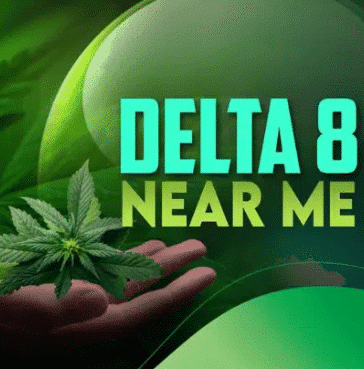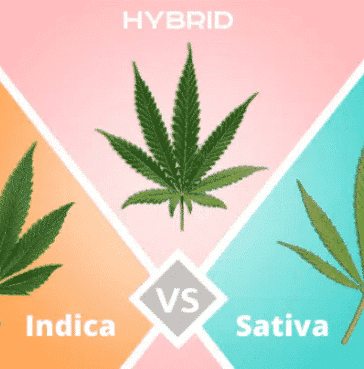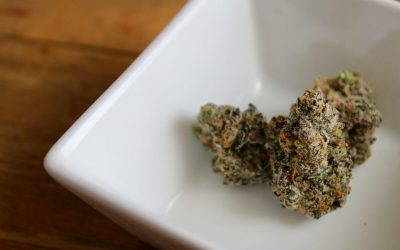Weed, pot, chronic, reefer, ganja, 420, Mary Jane, bud, herb. Across thousands of years of marijuana use, it’s gone by many names. As the legalization of cannabis spreads in the U.S., many are curious about the difference between Delta-8 and THC. When people hear “THC,” they’re usually thinking of Delta-9 tetrahydrocannabinol. However, Delta-8 is also a form of THC.
Delta-8 is a lesser-known cannabinoid that’s been gaining popularity due to its purported health benefits and milder effects compared to Delta-9 THC, the primary psychoactive compound in cannabis. So, when people ask about the difference between Delta-8 and THC, they really mean the difference between Delta-8 and weed.
So, just what is the difference between Delta-8 and regular weed (or Delta-9 THC)? In this article, we will explore the key differences, including their distinct chemical structures, effects on the body and potential benefits and risks. Understanding these differences is crucial to making informed decisions about the use of Delta-8. Let’s dive in!
Table of Contents:
How Is Delta-8 Different From Regular Weed in Chemical Composition?
What’s the Difference Between Regular Weed and Delta-8 in Terms of Their Effects on the Body?
Is Delta-8 Stronger Than Weed?
Does Delta-8 Give You a Different High?
Can Delta-8 Make You Fail a Drug Test?
Is Delta-8 Better or Worse for You?
Can I Fly With Delta-8 Edibles?
How Long Does It Take Delta-8 to Kick In?
How Is Delta-8 Different From Regular Weed in Chemical Composition?
Delta-8 THC is a minor cannabinoid that occurs naturally in cannabis plants, albeit in small quantities. It differs from Delta-9 THC, which is the most well-known and abundant cannabinoid in cannabis, in its chemical structure. Delta-8 THC has a double bond on the eighth carbon atom, whereas Delta-9 THC has it on the ninth carbon atom. This subtle difference in structure results in distinct effects on the body.
The production of Delta-8 THC involves chemically converting Delta-9. This process results in a refined extract that contains higher levels of Delta-8 THC than are naturally present in cannabis. The Delta-8 THC is then isolated and used to make a variety of products, such as edibles, tinctures and Delta-8 disposable vapes.
The key difference between Delta-8 and regular weed is the type and amount of THC present. Regular weed contains mostly Delta-9 THC, while Delta-8 THC is a minor cannabinoid that occurs in much lower quantities. This difference in THC content results in varying effects on the body and mind, which we will discuss further in the following sections.
What’s the Difference Between Regular Weed and Delta-8 in Terms of Their Effects on the Body?
Another main difference between Delta-8 and weed is their effects on the body. Delta-8 THC has been reported to have milder psychoactive effects than the Delta-9 THC present in regular weed. While both bind to the same receptors in the body’s endocannabinoid system, Delta-8 THC has a slightly different binding affinity that tends to result in a milder high.
Some users also report Delta-8 THC having benefits like the ability to stimulate appetite, reduce nausea, alleviate anxiety and relieve pain. However, more medical research is needed to confirm these claims.
On the other hand, regular weed containing high levels of Delta-9 THC is known to produce a more potent high and can have side effects such as increased heart rate, dry mouth and impaired cognitive function. Delta-8 can have these same side effects, but usually only when taken in high quantities. While Delta-9 THC is also believed to have some potential medical benefits, its psychoactive effects can make it unsuitable for some users.
Is Delta-8 Stronger Than Weed?
In general, no. The strength of Delta-8 and regular weed depends on various factors, including the amount of THC present and the individual’s tolerance to cannabinoids. However, as mentioned, Delta-8 THC is believed to produce milder psychoactive effects than Delta-9 THC found in regular weed.
Delta-8 binds to the same receptors in the body’s endocannabinoid system, but its binding affinity is lower than that of Delta-9 THC. As a result, Delta-8 THC is believed to produce a more relaxed and clear-headed high (with clearer cognitive processes, better memory and more focus) compared to Delta-9 THC.
Does Delta-8 Give You a Different High?
Delta-8 has been called “diet weed” or “Delta-9 THC’s nicer younger sibling.” While Delta-8 and regular weed can both produce psychoactive effects, Delta-8 THC is believed to be milder and less overwhelming than regular weed containing high levels of Delta-9 THC. This allows many users to experience the positive effects of THC without the couchlock, paranoia or anxiety.
Those who like to stay productive will likely have a better experience using Delta-8 compared to what they might get from Delta-9 THC. The slight psychoactive effect will leave you relaxed, focused and uplifted rather than completely impaired or wrecked.
Can Delta-8 Make You Fail a Drug Test?
Yes — Delta-8 THC may cause a positive result on a drug test designed to detect Delta-9 THC. Most drug tests are not intended to distinguish between different types of THC, and Delta-8 can trigger a positive result due to its similarity in structure to Delta-9.
Therefore, exercise caution if you’re using Delta-8 products and are subject to drug testing. You may want to avoid Delta-8 products altogether or check with your employer or the organization administering the drug test to see if they test for Delta-8 THC specifically.
It’s also worth noting that the legality of Delta-8 THC is still a gray area in some states. The 2018 Farm Bill legalized hemp and hemp-derived products, and new federal laws removed hemp-derived THC from the Controlled Substances Act. So, while Delta-8 is a legal agricultural product in the eyes of the federal government, some states have banned or restricted its use. Always check your state’s laws before using Delta-8 THC products.
Is Delta-8 Better or Worse for You?
Whether Delta-8 THC is better or worse for you depends on various factors, including your individual health condition, medical history and tolerance to cannabinoids. While Delta-8 THC tends to be milder than Delta-9 THC found in regular weed, it’s not entirely risk-free.
Like any psychoactive substance, Delta-8 THC can have side effects, such as dizziness, dry mouth, eye redness and impaired cognition. It can also cause changes in blood pressure and heart rate, which may concern some users. The current medical research on Delta-8 THC is limited, and its long-term effects on the body are not well-understood.
If you’re considering using Delta-8 THC products, it’s essential to do your research and consult with a healthcare professional. They can help you assess the potential benefits and risks of Delta-8 THC use and determine if it’s safe for you.
Can I Fly With Delta-8 Edibles?
Since the legality of Delta-8 THC is still a gray area in some states, it’s not entirely clear whether you can fly with Delta-8 edibles. Even if Delta-8 edibles are legal in your state, you may face legal issues if you travel to a state where they are not.
The Transportation Security Administration (TSA) guidelines state that you can bring hemp-derived products, including CBD oil, on a plane as long as they contain less than 0.3% Delta-9 THC. However, the guidelines do not explicitly mention Delta-8 THC, and it’s unclear whether Delta-8 THC falls under the same category in the eyes of the government.
Oh, and just like the states — airlines make their own rules. Even if your itinerary is clear and you get through the TSA security check, it’s ultimately up to a privately owned airline. As always, it’s best to be cautious if you’re considering putting Delta-8 edibles in your checked bag or carry-on. And definitely don’t use it at the airport.
How Long Does It Take Delta-8 to Kick In?
The time it takes for Delta-8 to kick in depends on several factors, including the delivery method, dosage and individual metabolism.
If you’re vaping, it shouldn’t take any time at all — it only takes minutes for the Delta-8 THC to enter the bloodstream through the lungs, allowing it to reach the brain quickly. If you are ingesting edibles, like Delta-8 gummies, the trip through your digestive system into your bloodstream could take anywhere from 15 minutes to an hour or more, depending on your metabolism.
Once it does kick in, the effects of Delta-8 THC generally last anywhere from four to eight hours.
Ready to Try Delta-8? Venera Can Help.
Delta-8 THC is a compound found in cannabis that differs from the Delta-9 THC in regular weed. Now that you understand the difference between Delta-8 and weed, you may be ready to try some Delta-8 products.
Venera offers a wide selection of high-quality Delta-8 products that undergo rigorous testing to ensure their safety and purity. We encourage you to explore our products and reach out to us with any questions you may have.
Difference Between Delta-8 and THC:Related Articles

How Much THC Is in Delta 8?
THC refers to the psychotropic component in marijuana, tetrahydrocannabinol. It functions similarly to the body’s natural cannabis chemicals, according to the National Institute on Drug Abuse (NIDA).

Where to Buy Delta 8 Near Me?
An overabundance of cannabidiol hemp extract plants led to the invention of delta-8-tetrahydrocannabinol and its subsequent success. Delta-8-tetrahydrocannabinol was invented by researchers seeking new ways to reinvent CBD.

Sativa vs Indica vs Hybrid Chart
Did you know that over 55 million American adults smoked cannabis at least once last year? About 35 million adults identify as “active users” among them. An “active user” is someone who consumes marijuana at least once a month.




